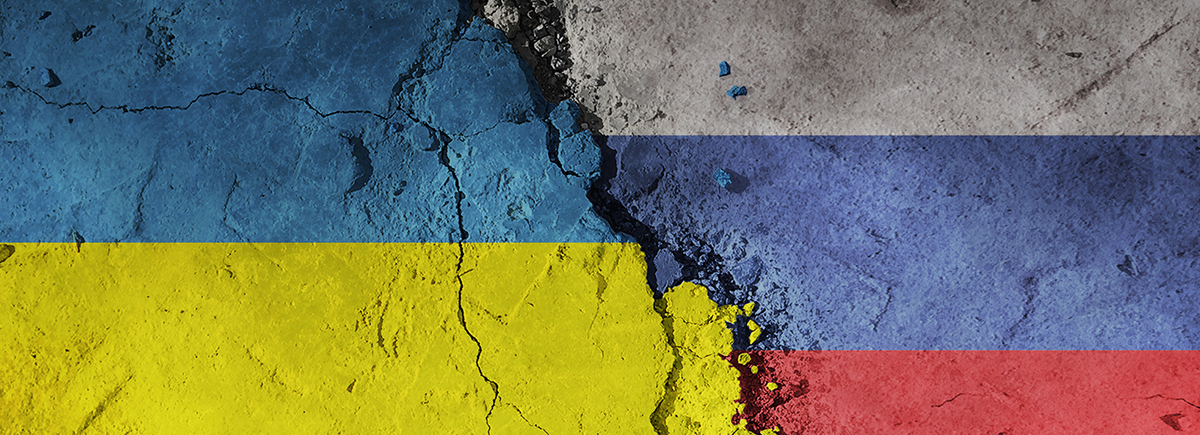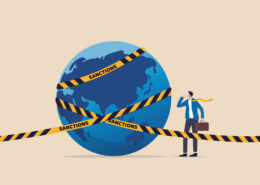Beyond The Hype: The True Role of Virtual Assets in Russia Sanctions Evasion
Virtual Assets’ Attraction and Changing Dynamics in Russia Sanctions Evasion Tactics
📅 February 27, 2024
📅 February 27, 2024
In the intricate dance of global finance and the digital age, the emergence of virtual assets has introduced a new repertoire of moves for both regulators and those seeking to sidestep their grasp. As international sanctions have become a tool of foreign policy, aimed at curtailing activities that threaten global peace and security, the spotlight has increasingly fallen on the role of cryptocurrencies and other virtual assets. This dance is increasingly scrutinized in the context of Russia’s actions on the world stage, particularly following the stringent sanctions imposed in 2022, as Moscow works to circumvent these restrictions.
At the heart of this conversation lies an important question: Can virtual assets effectively fuel a nation’s efforts to evade the financial barricades erected by the international community? So far, there’s little evidence to suggest that Russia has successfully used cryptocurrencies to evade sanctions on a large scale. However, the evolving nature of virtual currencies could potentially offer avenues for individual Russian actors to circumvent these sanctions.
The Appeal of Virtual Assets for Sanctions Evasion
With the onset of stringent sanctions against Russia in 2022, US officials and financial analysts began to speculate about the potential for cryptocurrencies to serve as a means for evasion. The speculation painted a picture of the intrinsic characteristics of virtual currencies—such as anonymity, global reach, ease of transfer, decentralization, and independence from traditional banking systems and regulations—underscoring their potential utility for circumventing global restrictions. Concerns were also raised that Russia may leverage its energy resources to mine bitcoin as a source of revenue.
These scenarios were not merely theoretical as comprehensively and heavily sanctioned countries such as Venezuela, Iran, and North Korea have leveraged virtual assets in both direct and indirect ways to mitigate the impact of sanctions with varying degrees of success.
Initial Skepticism Regarding Virtual Assets and Sanctions Evasion
As the narrative around the potential of virtual assets to facilitate sanctions evasion gained momentum, initial reactions were mixed, with some experts expressing skepticism that cryptocurrencies can be used as a large-scale mechanism for circumventing international sanctions. Early skepticism centered on the sheer scale of Russia’s economy and the comparative liquidity of the cryptocurrency market. Critics argued that the global cryptocurrency market lacked the necessary depth and liquidity to support the transaction volumes required to sustain an economy like Russia’s.
Another cornerstone of the initial skepticism was the technical nature of blockchain technology itself. Contrary to popular belief, blockchain transactions are not entirely anonymous but pseudonymous, with the potential for traceability. Advanced blockchain analytic tools and the public nature of the blockchain ledger allow for the tracking of transactions to their originators, undermining the perceived anonymity touted as ideal for circumventing sanctions. The global regulatory environment and the compliance infrastructure of major virtual currency exchanges also contributed to early doubts. Virtual currency exchanges, particularly those operating in jurisdictions with strict regulatory oversight, have implemented rigorous Know Your Customer (KYC) and Anti-Money Laundering (AML) procedures which could mitigate the risk of significant evasion through virtual assets.
Evolving Perspectives on Evasion Capabilities
Despite initial reservations, the narrative has taken a different turn, challenging early assumptions and underscoring the dynamic interplay between virtual assets and sanctions evasion. Russian state and non-state actors have attempted to use cryptocurrencies to move assets and evade sanctions, and several have been prosecuted for these efforts. However, so far, Russia’s attempts to use cryptocurrencies to evade sanctions on a greater scale have been limited, according to a FinCEN assessment in March 2022 and enforcement actions during the past two years.
The inherent transparency and permanence of blockchain transactions complicate any large-scale attempts by Russia to use virtual assets for sanctions evasion. With blockchain’s public ledger, transactions, though pseudonymous, are traceable, making anonymity difficult to maintain. Additionally, the limited acceptance of cryptocurrencies as payment means that eventually, cryptocurrencies must be converted to fiat, reintroducing the oversight of traditional financial systems.
Liquidity also poses a significant challenge. The cryptocurrency market does not have the capacity to support the financial needs of a nation under international sanctions, as highlighted by experts like Ari Redbord of TRM Labs. This lack of depth means cryptocurrencies are not a viable solution for Russia’s sanctions evasion.
These constraints underline the limited feasibility of cryptocurrencies as a tool for Russia to sidestep global sanctions. However, on the flip side, digital currencies have played a crucial role in supporting Ukrainian causes, showcasing the potential of digital finance amidst geopolitical strife. Continuous vigilance on the part of stakeholders and cohesive international collaboration to navigate the intricacies and mitigate the risks of abuse brought about by the integration of virtual currencies into the global financial ecosystem can help those in need receive needed support and gain access to the global financial system. The shifting dynamics of this landscape necessitate a proactive approach from all involved parties to safeguard the integrity of the global financial system in an increasingly digital era.

The Institute for Financial Integrity hosted a webinar to mark the two-year anniversary of Russia’s invasion of Ukraine on February 24, 2022. Watch the recording, during which IFI’s Nicki Kenyon and Pavel Verkhniatskyi, Managing Partner of Ukrainian due diligence and corporate intelligence firm COSA, discuss two years of sanctions, restrictions, and other measures countries around the world have implemented.
This is an outstanding opportunity to hear from an expert on the ground in Ukraine and understand compliance, due diligence, and investigations into Russia’s efforts to evade sanctions from Ukraine’s perspective.

Two years after its full-scale invasion of Ukraine, Russia has become the most sanctioned country in the world, with world powers imposing thousands of sanctions and other restrictions against Russian individuals, entities, vessels, and aircrafts. Strategic trade controls have become a substantial part of efforts to degrade Russia’s military capabilities and weaken its ability to wage war. At the same time, Moscow continues to come up with innovative and complicated ways to evade sanctions and trade restrictions and gain access to necessary resources to continue its aggression in Ukraine.










 Thanks to Russia, Cross-Border Sanctions Collaboration at All-Time High
Thanks to Russia, Cross-Border Sanctions Collaboration at All-Time HighThis site uses cookies. By continuing to browse the site, you are agreeing to our use of cookies.
Accept settingsHide notification onlySettingsWe may request cookies to be set on your device. We use cookies to let us know when you visit our websites, how you interact with us, to enrich your user experience, and to customize your relationship with our website.
Click on the different category headings to find out more. You can also change some of your preferences. Note that blocking some types of cookies may impact your experience on our websites and the services we are able to offer.
These cookies are strictly necessary to provide you with services available through our website and to use some of its features.
Because these cookies are strictly necessary to deliver the website, refusing them will have impact how our site functions. You always can block or delete cookies by changing your browser settings and force blocking all cookies on this website. But this will always prompt you to accept/refuse cookies when revisiting our site.
We fully respect if you want to refuse cookies but to avoid asking you again and again kindly allow us to store a cookie for that. You are free to opt out any time or opt in for other cookies to get a better experience. If you refuse cookies we will remove all set cookies in our domain.
We provide you with a list of stored cookies on your computer in our domain so you can check what we stored. Due to security reasons we are not able to show or modify cookies from other domains. You can check these in your browser security settings.
These cookies collect information that is used either in aggregate form to help us understand how our website is being used or how effective our marketing campaigns are, or to help us customize our website and application for you in order to enhance your experience.
If you do not want that we track your visit to our site you can disable tracking in your browser here:
We also use different external services like Google Webfonts, Google Maps, and external Video providers. Since these providers may collect personal data like your IP address we allow you to block them here. Please be aware that this might heavily reduce the functionality and appearance of our site. Changes will take effect once you reload the page.
Google Webfont Settings:
Google Map Settings:
Google reCaptcha Settings:
Vimeo and Youtube video embeds:
You can read about our cookies and privacy settings in detail on our Privacy Policy Page.
Privacy Policy